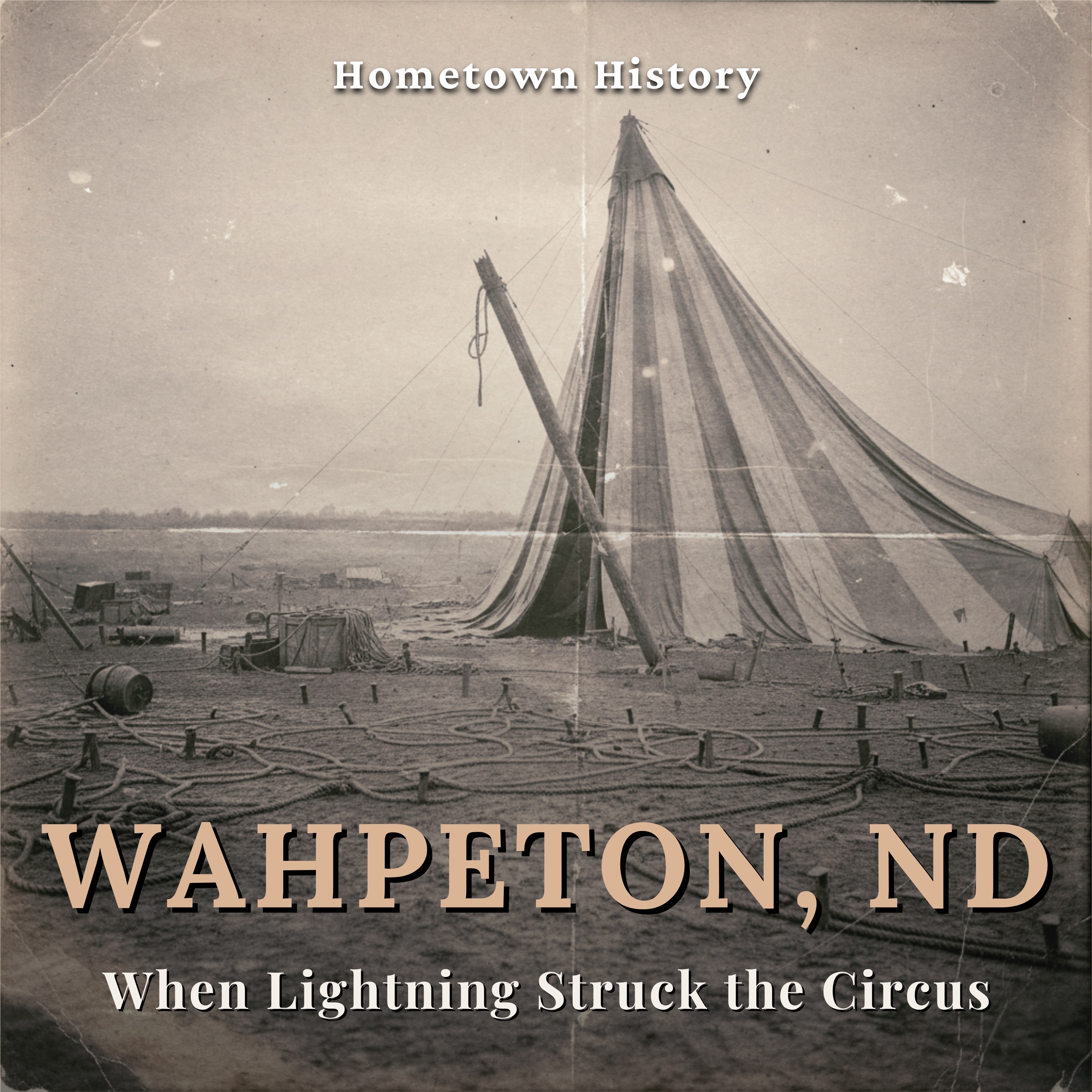

Wahpeton, North Dakota: When Lightning Struck the Circus in 1897
On June 10, 1897, the Ringling Brothers circus arrived in Wahpeton, North Dakota, transforming the small frontier town's ordinary morning into an extraordinary day of anticipation and wonder. As townspeople gathered to watch exotic animals unload from circus train cars, local children—including twelve-year-old Edward Williams—volunteered to help raise the massive circus tent in exchange for free show tickets. But beneath gathering storm clouds, what began as an exciting adventure turned into a nightmare when a direct lightning strike hit the main tent pole during setup. Two circus workers, Charles Smith and Charles Walters, were killed instantly. The tragedy stunned both the traveling circus crew and the local community, yet what followed revealed the profound bonds that could form between strangers in the face of sudden loss. This is the story of how a small Dakota Prairie town responded to tragedy with uncommon generosity, how a circus family honored its fallen members, and how a broken tent pole became an enduring monument to community resilience.Timeline of EventsJune 10, 1897, Dawn: Ringling Brothers circus train arrives at Wahpeton's Great Northern Depot. Local children gather to watch cages unload with white horses, hippopotamus, and exotic animals most had never seen before.Morning, 6:00-8:00 AM: Persistent rain begins falling. Despite stormy conditions, circus foreman pushes to raise the big top on schedule. Dozens of local boys, including Edward Williams, join adult roustabouts pulling ropes and driving stakes into muddy ground.Mid-Morning, ~9:00 AM: As crew struggles to lift water-soaked canvas and raise the center pole, dark thunderclouds build overhead. A burly circus worker nudges twelve-year-old Edward aside, saying "this is a man's work."The Lightning Strike: In a split second, blinding flash and simultaneous thunder. Direct lightning bolt strikes main tent pole, shattering the massive wooden beam. Two workers—Charles Smith and Charles Walters—are killed instantly. Others thrown to ground, stunned by the electrical discharge.Afternoon, June 10: Despite the tragedy, circus management decides to proceed with scheduled performances. Approximately 7,000 people attend, far outnumbering Wahpeton's total population. Shows go on as tribute to the fallen workers.June 11-12, 1897: Wahpeton community holds makeshift funeral for the two circus workers. Despite being itinerant laborers with no connection to the town, locals insist on burying them in the local cemetery with full honors.Shortly After 1897: Ringling Brothers circus management purchases a broken section of the lightning-struck tent pole, erects it as a monument in Wahpeton cemetery. Engraved marker identifies the two workers and commemorates the June 10, 1897 tragedy.The late 1890s marked the "Golden Age of the Circus" in America. Traveling shows like Ringling Brothers were the primary form of mass entertainment before movies and radio. These spectacular operations employed hundreds, moved by special circus trains, and drew crowds of thousands even to small frontier towns.Historical SignificanceThe Wahpeton circus lightning tragedy illuminates several important aspects of late 19th-century American life. First, it reveals the extraordinary cultural power of traveling circuses during this era—events so significant that 7,000 people would brave stormy weather to attend, even after witnessing a deadly accident that morning. Second, the community's response demonstrates how frontier towns navigated questions of social responsibility toward transient workers. In an era when itinerant laborers were often viewed with suspicion or indifference, Wahpeton's decision to bury the circus workers with honor and maintain their graves reflected evolving a
Episode Details
About This Episode
On June 10, 1897, the Ringling Brothers circus arrived in Wahpeton, North Dakota, transforming the small frontier town's ordinary morning into an extraordinary day of anticipation and wonder. As townspeople gathered to watch exotic animals unload from circus train cars, local children—including twelve-year-old Edward Williams—volunteered to help raise the massive circus tent in exchange for free show tickets. But beneath gathering storm clouds, what began as an exciting adventure turned into a n...